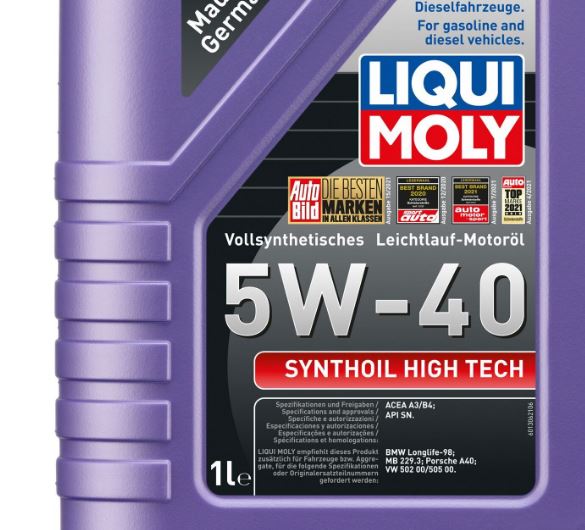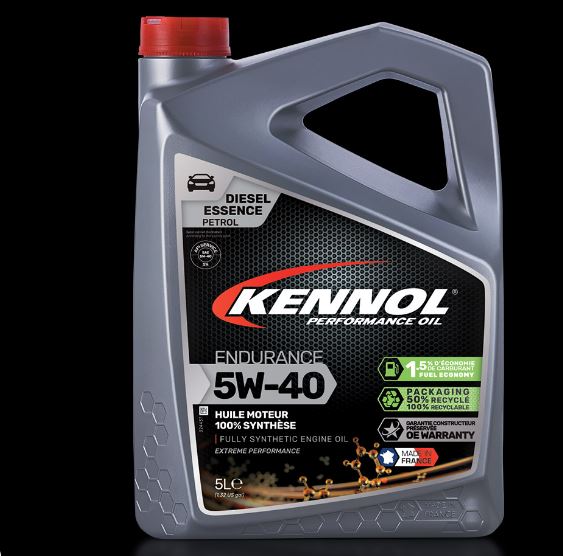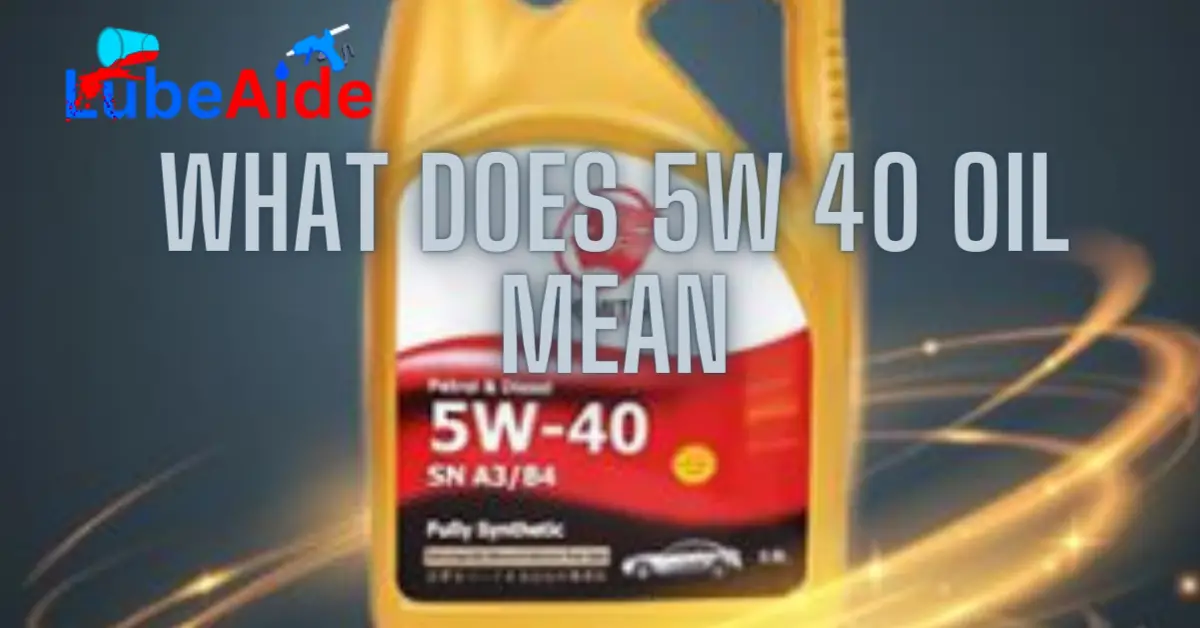In the realm of automotive maintenance, one term that frequently arises is “5W-40 oil.” This specific designation is an essential piece of information for vehicle owners and mechanics alike. In this, we will delve into the significance of this alphanumeric code and shed light on its implications for your engine’s performance and longevity.
Motor oil serves as the lifeblood of any engine, ensuring smooth operation and protecting vital components from wear and tear. The numbers “5W-40” refer to the oil’s viscosity grade, which conveys two critical properties: viscosity and temperature tolerance.5W-40 oil strikes a balance between fluidity during cold starts and stability at elevated engine temperatures. It is a versatile choice suitable for various climates and driving conditions. Understanding this code empowers vehicle owners to make informed decisions about their oil choices, ensuring optimal engine health and performance for the long haul.
The Significance of “5W-40” in 5W-40 Oil

“5W-40” in 5W-40 oil holds significant importance in the realm of automotive lubricants. This alphanumeric code represents the viscosity grade of the motor oil, conveying crucial information about its flow characteristics and temperature performance.
The “5W” portion of the code indicates the oil’s viscosity at low temperatures, particularly during winter conditions. The “W” stands for “winter,” signifying that the oil has been engineered to flow smoothly even in cold climates. A low viscosity at cold temperatures means the oil can quickly reach critical engine components during start-up, minimizing wear and providing essential lubrication when the engine is coldest.
On the other hand, the “40” in “5W-40” represents the oil’s viscosity at high temperatures. This measurement reveals the oil’s ability to maintain a consistent protective film on engine parts during hot operating conditions. A higher viscosity at elevated temperatures ensures that the oil remains stable and adequately lubricates the engine, even when exposed to intense heat and stress.
The combination of these two values in “5W-40” creates a versatile and well-rounded motor oil. It can handle both cold and hot conditions effectively, making it suitable for a wide range of climates and driving environments. This adaptability and balanced performance make 5W-40 oil a popular choice for various types of vehicles, from standard passenger cars to high-performance engines.
Advantages of 5W-40 Oil
5W-40 oil offers several distinct advantages that make it a preferred choice for many vehicle owners and automotive applications. Here are some of the key advantages of using 5W-40 oil:
Versatility: One of the most significant advantages of 5W-40 oil is its versatility. The 5W rating indicates that it flows smoothly even in extremely cold temperatures, ensuring rapid lubrication during engine start-up. The 40 rating indicates that it maintains a stable viscosity at high temperatures, providing excellent engine protection even under intense heat and heavy loads. This adaptability makes 5W-40 oil suitable for use in a wide range of climates and driving conditions, from cold winters to hot summers.
Cold-Start Performance: The low viscosity (5W) of 5W-40 oil allows it to reach critical engine components quickly during cold starts. This reduces wear and tear on engine parts, particularly during the initial moments when the engine is at its coldest and the need for effective lubrication is most crucial. Improved cold-start performance leads to smoother engine operation and reduced stress on the battery and starter motor.
Fuel Efficiency: 5W-40 oil’s ability to flow smoothly in cold conditions contributes to improved fuel efficiency. The reduced friction during start-up and operation allows the engine to work more efficiently, potentially leading to better gas mileage and lower fuel consumption.
Engine Protection: With its high-temperature stability (40 rating), 5W-40 oil provides robust protection to engine components when operating under extreme conditions. It forms a consistent protective film on engine parts, reducing metal-to-metal contact and minimizing wear and tear. This protection extends the engine’s lifespan and helps prevent premature engine failure.
Compatibility: 5W-40 oil is widely compatible with various engine types, including gasoline and diesel engines. This compatibility makes it a popular choice for a diverse range of vehicles, from passenger cars to trucks and SUVs.
Reduced Oil Consumption: Due to its stable viscosity, 5W-40 oil tends to experience less thinning or thickening over time compared to some other oils. As a result, it may reduce oil consumption and the need for frequent top-ups between oil changes.
Longer Oil Change Intervals: The excellent thermal stability and wear protection provided by 5W-40 oil can allow for longer oil change intervals in some cases, provided the vehicle manufacturer’s recommendations are followed.
In summary, 5W-40 oil’s versatility, cold-start performance, engine protection, and fuel efficiency make it a reliable and popular choice for many drivers and mechanics. Its ability to perform well under a variety of conditions ensures that the engine remains properly lubricated and protected, promoting smoother operation and extended engine life.
Applications and Compatibility
5W-40 oil finds widespread applications in various types of vehicles and industrial equipment. Its versatile properties make it suitable for a range of engine types and operating conditions. Here are the primary applications and compatibility aspects of 5W-40 oil:
1. Automotive Engines: 5W-40 oil is commonly used in both gasoline and diesel engines found in passenger cars, SUVs, light trucks, and motorcycles. It offers excellent performance in modern engines with advanced technologies such as turbocharging and direct injection.
2. High-Performance Engines: The stability and protection provided by 5W-40 oil make it an ideal choice for high-performance engines used in sports cars, performance-oriented vehicles, and modified engines. These engines often operate at higher temperatures and require a robust oil to handle the increased stress and power output.
3. Commercial Vehicles: 5W-40 oil is compatible with diesel engines in commercial vehicles, including trucks, buses, and fleet vehicles. These engines often endure heavy loads and extended operation, making the oil’s high-temperature performance crucial for their reliability and longevity.
4. Construction and Agricultural Machinery: Many construction and agricultural machines, such as tractors, excavators, and bulldozers, rely on 5W-40 oil for their engines. The oil’s ability to handle varying weather conditions and extreme temperatures makes it suitable for equipment used in diverse environments.
5. Marine Engines: 5W-40 oil can be used in marine engines, including inboard and outboard engines on boats and personal watercraft. Its cold-flow properties and high-temperature stability ensure proper lubrication and protection in marine environments.
6. Compatibility with Seals and Gaskets: 5W-40 oil is typically formulated to be compatible with various engine seals and gaskets, reducing the risk of leaks and maintaining engine integrity.
7. Synthetic and Conventional Oils: 5W-40 oil is available in both synthetic and conventional formulations. Synthetic 5W-40 oil tends to offer better performance and protection, especially at extreme temperatures, making it a preferred choice for many modern vehicles.
8. Compatibility with Oil Filters: 5W-40 oil is compatible with most standard oil filters used in automotive and industrial applications. However, it is essential to use a filter recommended by the vehicle or equipment manufacturer to ensure proper fit and filtration efficiency.
9. Manufacturer Recommendations: Always refer to the vehicle or equipment manufacturer’s guidelines and specifications for the recommended oil viscosity and performance requirements. Following the manufacturer’s recommendations ensures optimal engine performance and warranty compliance.
When and How to Use 5W-40 Oil

Knowing when and how to use 5W-40 oil is essential to ensure optimal engine performance and longevity. Here are the guidelines on when and how to use 5W-40 oil:
When to Use 5W-40 Oil:
Vehicle/Equipment Manufacturer Recommendations: Always refer to the owner’s manual or equipment manufacturer’s guidelines to determine the recommended oil viscosity and performance specifications for your specific vehicle or equipment. Manufacturers carefully select the appropriate oil grade based on the engine’s design and operating conditions.
Climate and Temperature: 5W-40 oil is particularly beneficial in regions with fluctuating temperatures, especially during cold winters. If you live in a region with extreme temperature variations, using 5W-40 oil can provide better cold-start performance and protection.
Modern Engines: Many modern engines, especially those equipped with turbochargers and advanced technologies, may require 5W-40 oil for optimal performance and protection. These engines are designed with tighter tolerances, and using the recommended oil grade is crucial to prevent premature wear.
High-Performance Vehicles: If you own a high-performance car or engage in spirited driving, 5W-40 oil can offer the necessary protection to handle the increased stress and heat generated by performance-oriented engines.
How to Use 5W-40 Oil:
Oil Change Intervals: Follow the recommended oil change intervals provided by the vehicle or equipment manufacturer. Changing the oil regularly ensures that the engine remains properly lubricated and protected.
Oil Filter Replacement: Whenever you change the oil, also replace the oil filter with a high-quality filter that meets the manufacturer’s specifications. The oil filter helps remove contaminants and debris from the oil, ensuring its cleanliness and effectiveness.
Proper Disposal: Dispose of used oil responsibly by taking it to a certified recycling center or an automotive service facility that handles used oil disposal. Do not dispose of used oil in the environment or pour it down drains.
Storage: Store new containers of 5W-40 oil in a cool, dry place away from direct sunlight. This ensures that the oil maintains its properties and remains suitable for use.
Professional Service: If you are unsure about changing the oil or have limited experience with vehicle maintenance, consider having a qualified mechanic or automotive technician perform the oil change. They can also inspect the engine for any potential issues.
Oil Level Check: Regularly check the oil level using the dipstick, especially before long trips or when the engine has been running for an extended period. Maintaining the proper oil level is essential for engine health.
FAQs About What Does 5W 40 Oil Mean
Can I use 5W-40 oil in my vehicle?
To determine whether 5W-40 oil is suitable for your vehicle, refer to the manufacturer’s recommendations in the owner’s manual. Many modern vehicles are compatible with 5W-40 oil, but it’s essential to follow the specified oil grade to ensure proper engine performance and warranty compliance.
When should I use 5W-40 oil?
You should use 5W-40 oil when it aligns with the manufacturer’s recommendations for your vehicle and its operating conditions. It is particularly beneficial in regions with cold winters or for vehicles exposed to fluctuating temperature environments. 5W-40 oil is also suitable for high-performance engines and modern engines with advanced technologies.
Can I switch to 5W-40 oil from another viscosity grade?
Switching to 5W-40 oil from another viscosity grade may be possible, but it’s crucial to check the manufacturer’s guidelines first. Some engines require a specific oil viscosity for optimal performance and warranty coverage. Consult your owner’s manual or a certified mechanic for advice on switching to 5W-40 oil.
Is synthetic 5W-40 oil better than conventional oil?
Synthetic 5W-40 oil tends to offer better performance and protection, especially in extreme temperatures and under heavy loads. It typically flows more smoothly at low temperatures and provides improved engine protection at high temperatures compared to conventional oil. However, the choice between synthetic and conventional oil depends on the vehicle’s requirements, driving conditions, and budget.
How often should I change 5W-40 oil?
Follow the oil change interval recommended by the vehicle manufacturer. Generally, it is advised to change the oil every few thousand miles or according to the time specified in the owner’s manual. Regular oil changes help maintain engine health and performance.
Can 5W-40 oil be used in hot climates?
Yes, 5W-40 oil’s high-temperature stability makes it suitable for use in hot climates. It maintains its viscosity and protective properties even under extreme heat, providing the necessary lubrication and protection for the engine.
Is 5W-40 oil compatible with older vehicles?
5W-40 oil is compatible with some older vehicles, but it’s essential to consider the manufacturer’s recommendations. Some older engines may require different viscosity grades, so consult the owner’s manual or a qualified mechanic to ensure compatibility and optimal performance.
Final Thought
In the end, the alphanumeric code “5W-40” in 5W-40 oil holds significant importance in the realm of automotive lubricants. This designation represents the oil’s viscosity grade, which communicates two crucial properties: its flow characteristics in cold temperatures and its stability at high operating temperatures.
The “5W” indicates that the oil flows smoothly even in cold weather, making it effective for quick engine start-up and providing essential lubrication during the coldest moments. On the other hand, the “40” denotes the oil’s ability to maintain a stable viscosity under high temperatures, ensuring robust engine protection during intense heat and heavy loads.
The versatility of 5W-40 oil allows it to be widely used in various applications, from passenger cars and high-performance engines to commercial vehicles and industrial equipment. Its compatibility with both gasoline and diesel engines makes it a popular choice for diverse driving conditions and climates.
Related Topics:
- How Long to Let Engine Cool Before Adding Oil
- Oil Change Check Engine Light
- Which Engine Component Stores Oil for Lubrication
- How To Remove Oil Pan Without Removing Engine
- Is It Ok to Change Engine Oil Brands
- Will an Engine Overheat Without Oil
- Can You Use 15w40 Diesel Oil in a Gas Engine
- is engine oil same as transmission fluid
- Is Engine Oil Flammable
- what happens if you put transmission fluid in the oil
- Checking Oil In Cold Weather
- How Much Oil Should Be on the Dipstick


